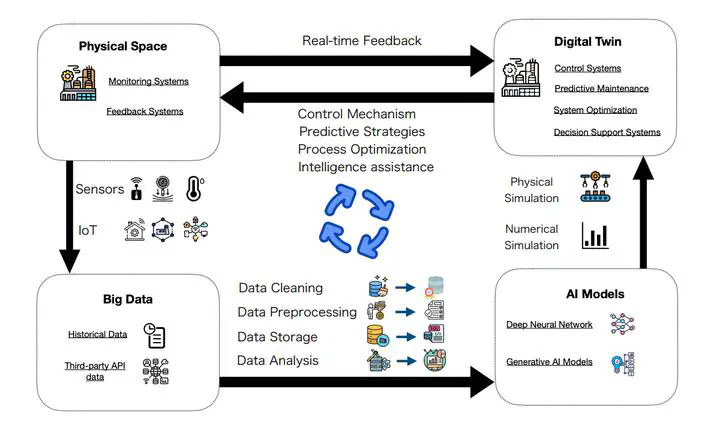 Image credit: Unsplash
Image credit: Unsplash
Abstract
Digital twin technology, a cutting-edge approach that creates dynamic digital replicas of physical systems, is increasingly integral to various industrial applications. However, the effective deployment of digital twins often faces challenges associated with data availability, quality, and interoperability, which can impede the development and operational efficacy of these virtual counterparts. This paper presents a systematic review of the application of artificial intelligence (AI) in enhancing and managing digital twin technologies across multiple domains such as industry, healthcare, urban planning, business, education, technology, and others. It specifically examines how machine learning models, particularly neural networks and deep generative models, are being employed to optimize the creation, maintenance, and functionality of digital twins. The review explores the role of artificial intelligence in overcoming data-related limitations by providing robust, scalable data solutions for digital twins. Additionally, it addresses critical considerations of real-time data processing and system interoperability within these applications. This survey not only identifies the prevailing challenges and opportunities within this emerging field but also highlights potential future research directions that could further the integration of AI with digital twin technology. Through a detailed exploration of the intersection between AI and digital twins, this paper aims to contribute significantly to the knowledge base and encourage further innovations in this interdisciplinary area.